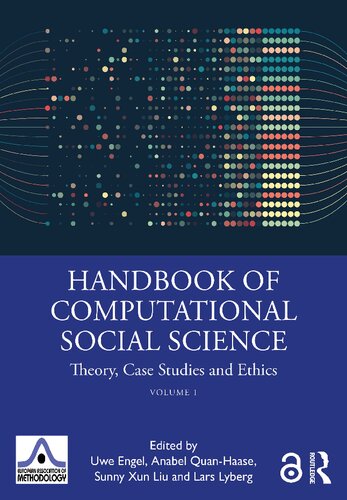

Most ebook files are in PDF format, so you can easily read them using various software such as Foxit Reader or directly on the Google Chrome browser.
Some ebook files are released by publishers in other formats such as .awz, .mobi, .epub, .fb2, etc. You may need to install specific software to read these formats on mobile/PC, such as Calibre.
Please read the tutorial at this link: https://ebookbell.com/faq
We offer FREE conversion to the popular formats you request; however, this may take some time. Therefore, right after payment, please email us, and we will try to provide the service as quickly as possible.
For some exceptional file formats or broken links (if any), please refrain from opening any disputes. Instead, email us first, and we will try to assist within a maximum of 6 hours.
EbookBell Team

5.0
38 reviewsThe Handbook of Computational Social Science is a comprehensive reference source for scholars across multiple disciplines. It outlines key debates in the field, showcasing novel statistical modeling and machine learning methods, and draws from specific case studies to demonstrate the opportunities and challenges in CSS approaches.
The Handbook is divided into two volumes written by outstanding, internationally renowned scholars in the field. This first volume focuses on the scope of computational social science, ethics, and case studies. It covers a range of key issues, including open science, formal modeling, and the social and behavioral sciences. This volume explores major debates, introduces digital trace data, reviews the changing survey landscape, and presents novel examples of computational social science research on sensing social interaction, social robots, bots, sentiment, manipulation, and extremism in social media. The volume not only makes major contributions to the consolidation of this growing research field but also encourages growth in new directions.
With its broad coverage of perspectives (theoretical, methodological, computational), international scope, and interdisciplinary approach, this important resource is integral reading for advanced undergraduates, postgraduates, and researchers engaging with computational methods across the social sciences, as well as those within the scientifi c and engineering sectors.